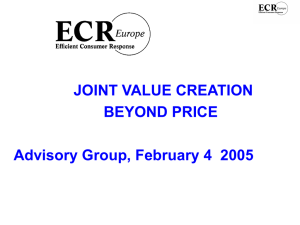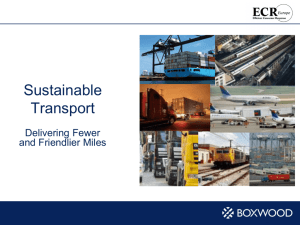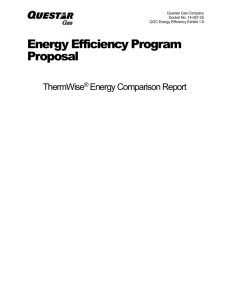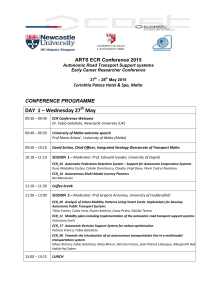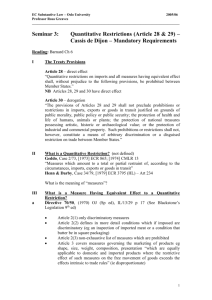JEAN MONNET MODULE: EU INTERNAL MARKET LAW Prof
advertisement
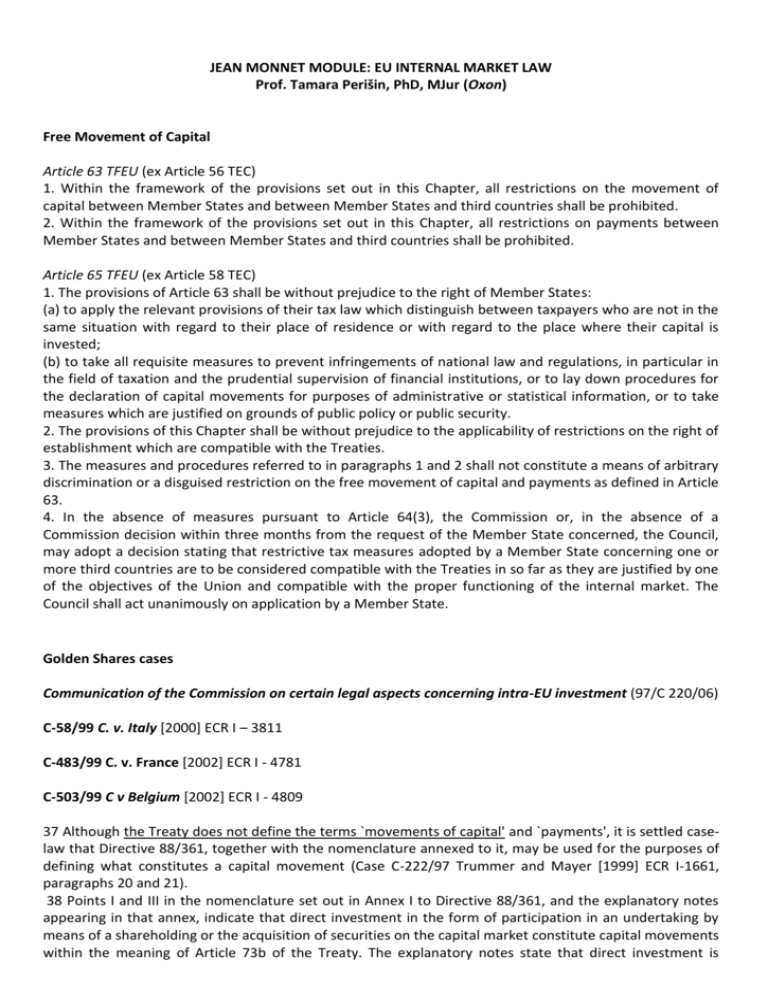
JEAN MONNET MODULE: EU INTERNAL MARKET LAW Prof. Tamara Perišin, PhD, MJur (Oxon) Free Movement of Capital Article 63 TFEU (ex Article 56 TEC) 1. Within the framework of the provisions set out in this Chapter, all restrictions on the movement of capital between Member States and between Member States and third countries shall be prohibited. 2. Within the framework of the provisions set out in this Chapter, all restrictions on payments between Member States and between Member States and third countries shall be prohibited. Article 65 TFEU (ex Article 58 TEC) 1. The provisions of Article 63 shall be without prejudice to the right of Member States: (a) to apply the relevant provisions of their tax law which distinguish between taxpayers who are not in the same situation with regard to their place of residence or with regard to the place where their capital is invested; (b) to take all requisite measures to prevent infringements of national law and regulations, in particular in the field of taxation and the prudential supervision of financial institutions, or to lay down procedures for the declaration of capital movements for purposes of administrative or statistical information, or to take measures which are justified on grounds of public policy or public security. 2. The provisions of this Chapter shall be without prejudice to the applicability of restrictions on the right of establishment which are compatible with the Treaties. 3. The measures and procedures referred to in paragraphs 1 and 2 shall not constitute a means of arbitrary discrimination or a disguised restriction on the free movement of capital and payments as defined in Article 63. 4. In the absence of measures pursuant to Article 64(3), the Commission or, in the absence of a Commission decision within three months from the request of the Member State concerned, the Council, may adopt a decision stating that restrictive tax measures adopted by a Member State concerning one or more third countries are to be considered compatible with the Treaties in so far as they are justified by one of the objectives of the Union and compatible with the proper functioning of the internal market. The Council shall act unanimously on application by a Member State. Golden Shares cases Communication of the Commission on certain legal aspects concerning intra-EU investment (97/C 220/06) C-58/99 C. v. Italy [2000] ECR I – 3811 C-483/99 C. v. France [2002] ECR I - 4781 C-503/99 C v Belgium [2002] ECR I - 4809 37 Although the Treaty does not define the terms `movements of capital' and `payments', it is settled caselaw that Directive 88/361, together with the nomenclature annexed to it, may be used for the purposes of defining what constitutes a capital movement (Case C-222/97 Trummer and Mayer [1999] ECR I-1661, paragraphs 20 and 21). 38 Points I and III in the nomenclature set out in Annex I to Directive 88/361, and the explanatory notes appearing in that annex, indicate that direct investment in the form of participation in an undertaking by means of a shareholding or the acquisition of securities on the capital market constitute capital movements within the meaning of Article 73b of the Treaty. The explanatory notes state that direct investment is characterised, in particular, by the possibility of participating effectively in the management of a company or in its control. 39 In the light of those considerations, it is necessary to consider whether the rules vesting in the Kingdom of Belgium `golden shares' in SNTC and Distrigaz, entitling that Member State to oppose, first, any transfer, use as security or change in the intended destination of lines and conduits or of certain other strategic assets and, second, certain management decisions regarded as contrary to the guidelines for the country's energy policy, constitute a restriction on the movement of capital between Member States. 40 The Belgian Government does not deny, in principle, that the restrictions to which the legislation in issue gives rise fall within the scope of the free movement of capital. 41 The United Kingdom Government likewise concedes, at least partially, that the Belgian legislation is restrictive in nature. 42 Consequently, it is necessary to consider whether, and in what circumstances, the legislation in issue may be justified. ………… public security may be relied on only if there is a genuine and sufficiently serious threat to a fundamental interest of society (see, in particular, Eglise de scientologie, cited above, paragraph 17). 48 It is necessary, therefore, to ascertain whether the legislation in issue enables the Member State concerned to ensure a minimum level of energy supplies in the event of a genuine and serious threat, and whether or not it goes beyond what is necessary for that purpose. 49● First of all, it should be noted that the regime in issue is one of opposition. It is predicated on the principle of respect for the decision-making autonomy of the undertaking concerned, inasmuch as, in each individual case, the exercise of control by the minister responsible requires an initiative on the part of the Government authorities. No prior approval is required. Moreover, in order for that power of opposition to be exercised, the public authorities are obliged to adhere to strict time-limits. 50 ●Next, the regime is limited to certain decisions concerning the strategic assets of the companies in question, including in particular the energy supply networks, and to such specific management decisions relating to those assets as may be called in question in any given case. 51 ●Lastly, the Minister may intervene pursuant to Articles 3 and 4 of the Royal Decrees of 10 and 16 June 1994 only where there is a threat that the objectives of the energy policy may be compromised. ● Furthermore, as the Belgian Government has expressly stated in its written pleadings and at the hearing, without being contradicted on the point by the Commission, any such intervention must be supported by a formal statement of reasons and may be the subject of an effective review by the courts. 52 The scheme therefore makes it possible to guarantee, on the basis of objective criteria which are subject to judicial review, the effective availability of the lines and conduits providing the main infrastructures for the domestic conveyance of energy products, as well as other infrastructures for the domestic conveyance and storage of gas, including unloading and cross-border facilities. Thus, it enables the Member State concerned to intervene with a view to ensuring, in a given situation, compliance with the public service obligations incumbent on SNTC and Distrigaz, whilst at the same time observing the requirements of legal certainty. 53 The Commission has not shown that less restrictive measures could have been taken to attain the objective pursued. There is no certainty that planning designed to encourage natural gas undertakings to conclude long-term supply contracts, to diversify their sources of supply or to operate a system of licences would be enough, on its own, to permit a rapid reaction in any particular situation. Moreover, the introduction of rules precisely defining the standards required of undertakings in the sector concerned, as proposed by the Commission, would appear to be even more restrictive than a right of opposition limited to specific situations. C-98/01 C v UK, [2003] ECR I – 4641, the BAA Case C-112/05 C v Germany [2007] ECR I-08995, the Volkswagen case

